The Business Council of Australia (BCA) estimates that an extra 64,000 dwellings will be required each year if the federal government’s target of building 1.2 million new homes over five years is to be achieved.
The BCA has proposed an overhaul of the planning regime in order to boost housing supply.
Amongst other things, it has suggested that local councils be subject to performance metrics with regard to planning approvals, and those that fail to measure up should be stripped of this role.
“We have a housing supply crisis in Australia and we need to turbocharge the assessment and approval process so we get more homes built faster”, BCA CEO Bran Black said.
“This supply crisis, driven by a shortfall, means demand for limited houses further pushes up prices and rents, driving higher inflation, which hurts all Australians”.
“Plain and simple, we need more supply, and we want to work with local and state governments to speed up their housing decisions, so builders can get on with the job of delivering places for people to live”.
The BCA’s supply spruik follows its paper last year pushing back against calls to reduce immigration:

The BCA falsely claimed that “the migration numbers currently recorded by the nation simply reflect a rebalancing after the pandemic border closures in 2020 and 2021”.
“Australia’s updated population forecasts are below the pre-pandemic forecasts made in 2019”, the BCA paper claimed.
“The narrative that there is currently a ‘big Australia’ policy in play is a myth”.
“Some have characterised this as a ‘big Australia policy’, but this is a totally disingenuous representation of the nation’s migration and population story”.
“Today, Australia’s population is estimated to be over 375,000 people below the forecast prior to the pandemic”.
“Even by the end of the decade, the population is still expected to be 225,000 short of the pre-pandemic projection for that same period”, the BCA said.
The BCA’s migration claims have obviously aged like milk.
Between 31 December 2019 and 30 September 2024, Australia’s population ballooned by 1,880,000 (according to the ABS Population Clock).
This means that Australia’s population grew by an average of 98,900 per quarter, which is well above the 91,200 average quarter growth recorded over the 15 years of ‘Big Australia’ immigration experienced pre-pandemic.
Moreover, net overseas migration is officially projected to be higher into the future (235,000 per year) than it was in the 15 years pre-pandemic (217,400 average):
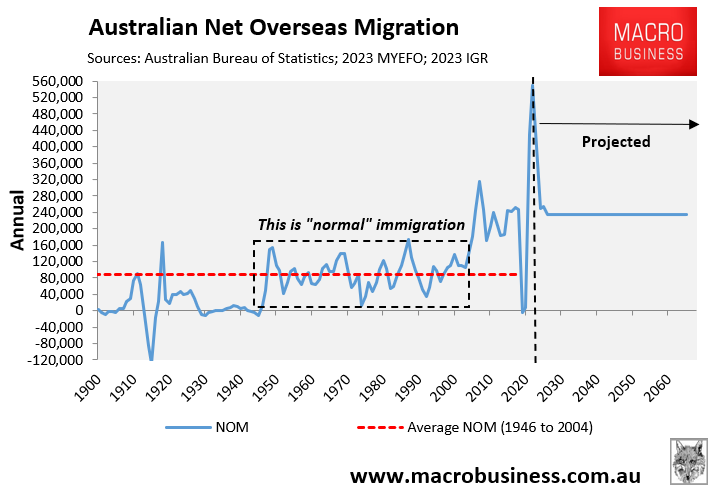
This extreme immigration is projected to grow Australia’s population by more than 13 million people (equivalent to adding another Sydney, Melbourne, and Brisbane) in only 39 years.
Therefore, for the BCA to claim that it is “totally disingenuous” to claim that the government is running a ‘Big Australia’ policy is itself “totally disingenuous”.
Finally, why does the BCA think that relaxing planning will magically result in more affordable homes? It certainly hasn’t in Canada, which runs a similar mass migration policy.
Vancouver, which has taken high-density living to the extreme with disastrous outcomes for both home price and rental affordability?
As Patrick Condon (James Taylor Chair in Landscape and Liveable Environments at the University of British Columbia’s School of Architecture and Landscape Architecture and founding chair of the UBC Urban Design program) explained, Vancouver completely transformed by tripling its housing through high-density infill, but housing affordability deteriorated.
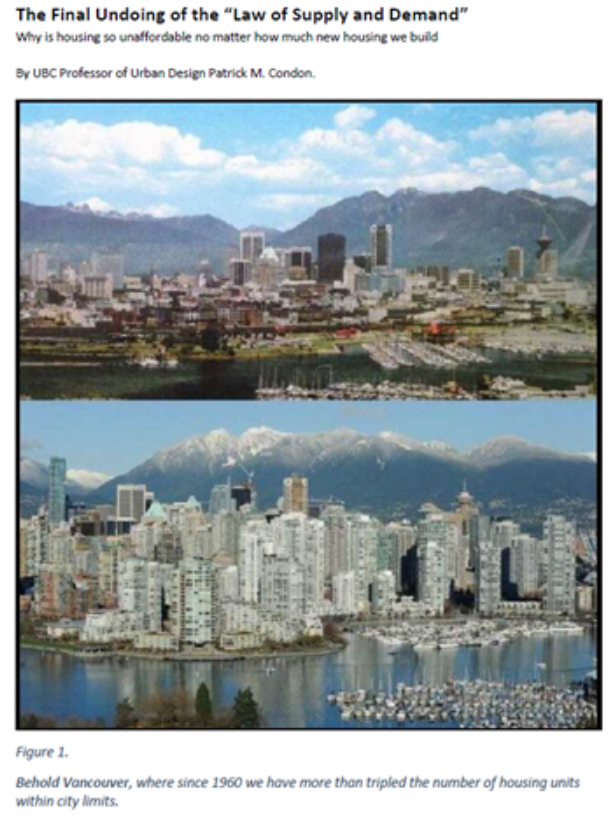
“This giant surge of new housing supply did not lead to more affordable housing as we all hoped. Somehow, confoundingly, the reverse happened”, Condon wrote.
“During this period, Vancouver housing prices quadrupled, rising faster and further than in any other North American centre city”.
“Currently, Vancouver home prices are North America’s highest and the third-most expensive globally (behind only Hong Kong and Sydney)”.
“Vancouver-area wages have stayed stubbornly flat (inflation-adjusted) while housing prices (also inflation-adjusted) have climbed by 400%”, he said.
Vancouver has gone hog wild with high-rise apartment towers:
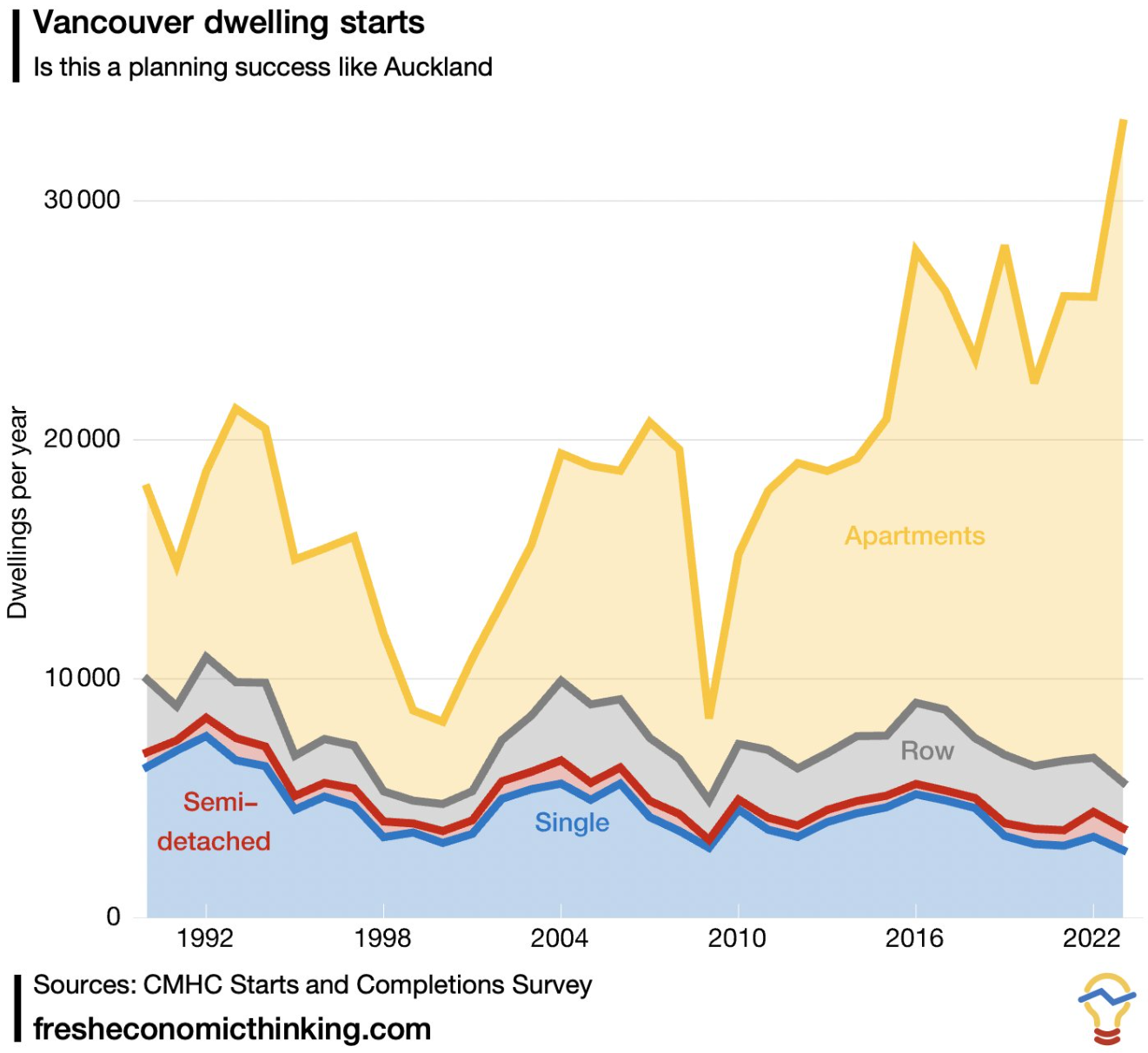

However, Vancouver is ranked among the most unaffordable housing markets in the world when it comes to prices:
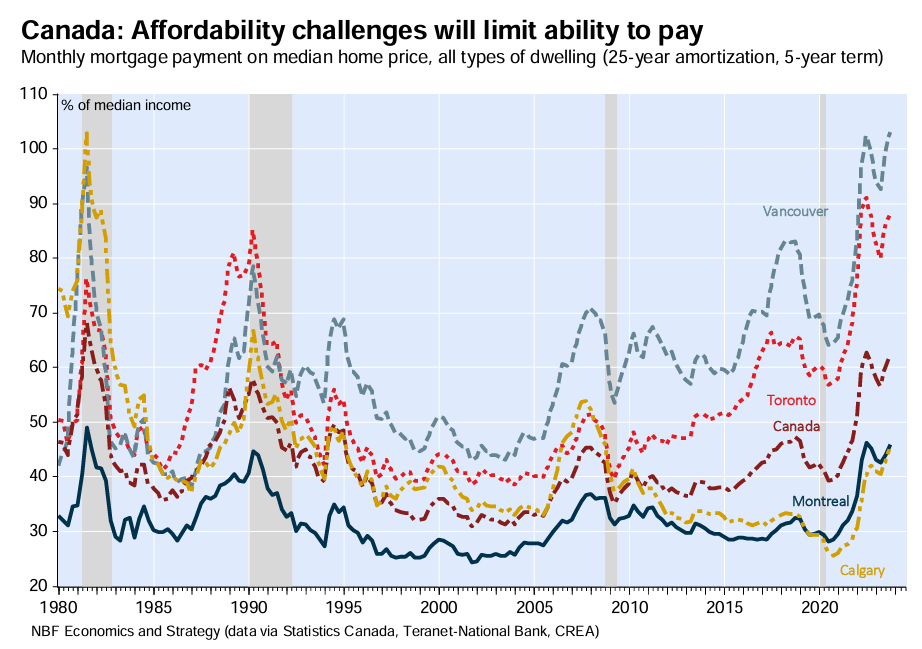
Vancouver also has the highest rents in Canada:
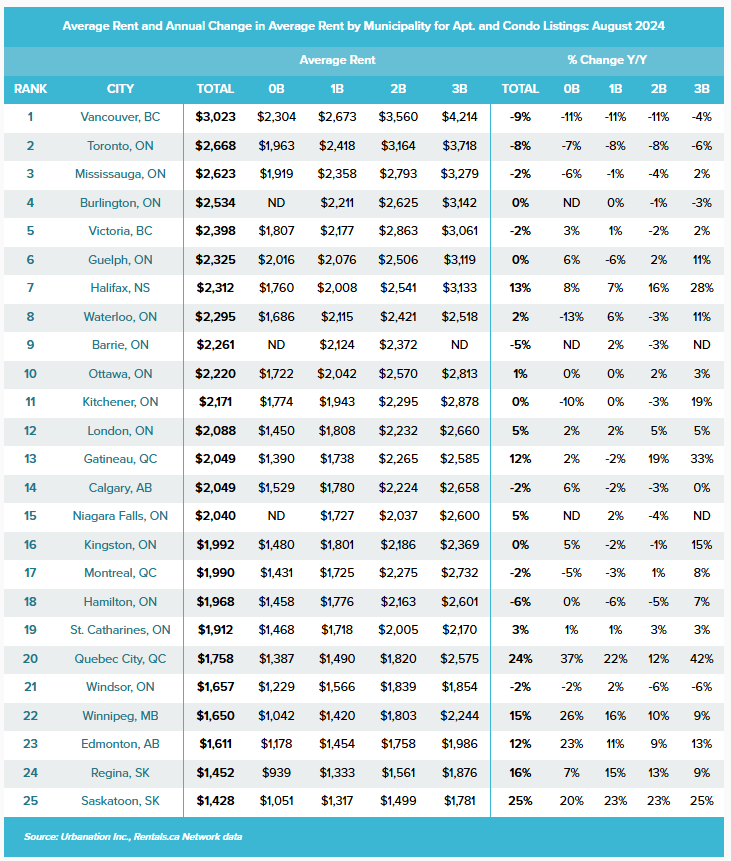
That’s hardly a glowing endorsement of the BCA’s argument if affordability is the goal.
It’s also no surprise that Vancouver, like Sydney and Melbourne, has seen an massive influx of net overseas migration and foreign buyers:
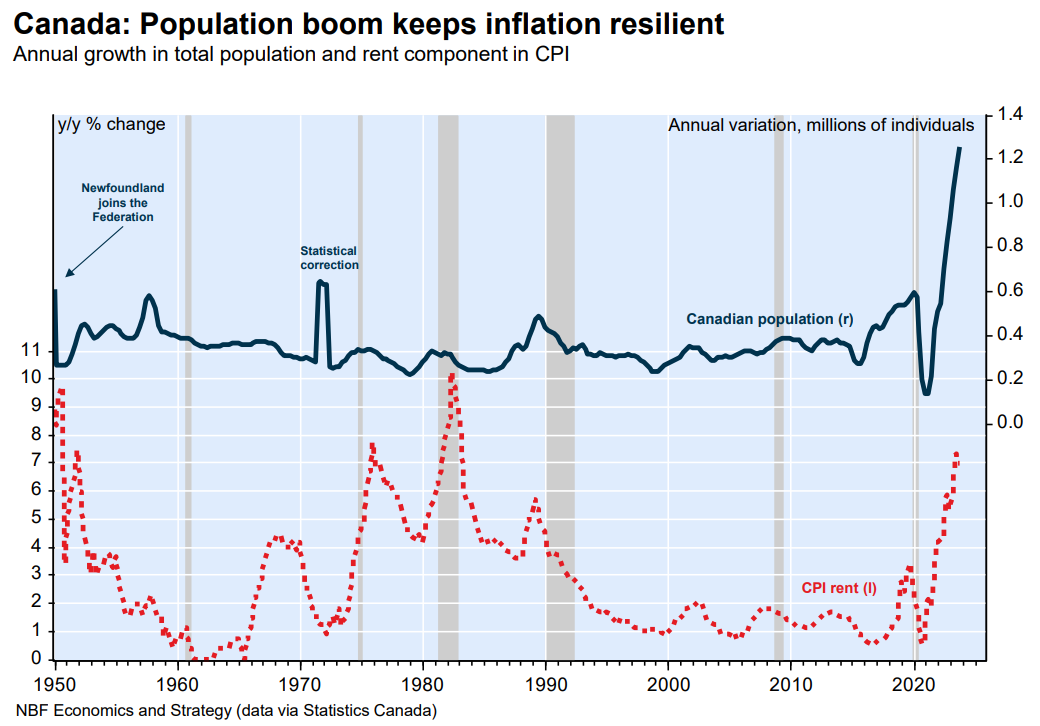
This has created a gaping housing shortage and driven up rents:
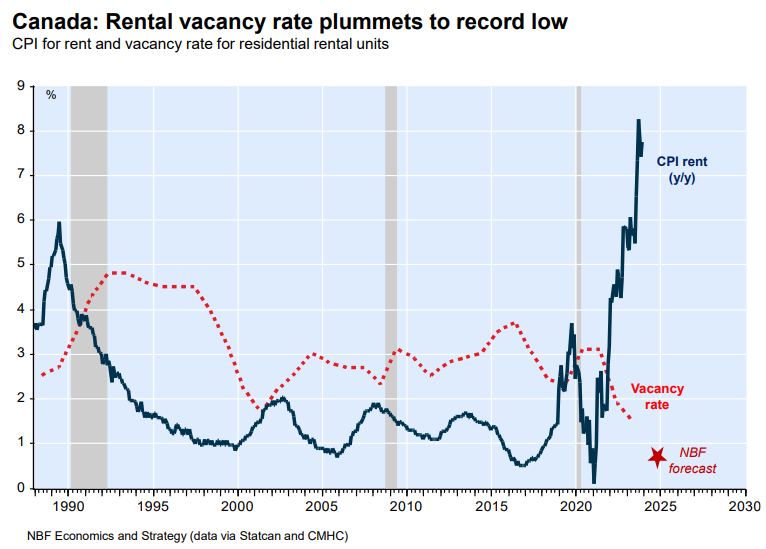
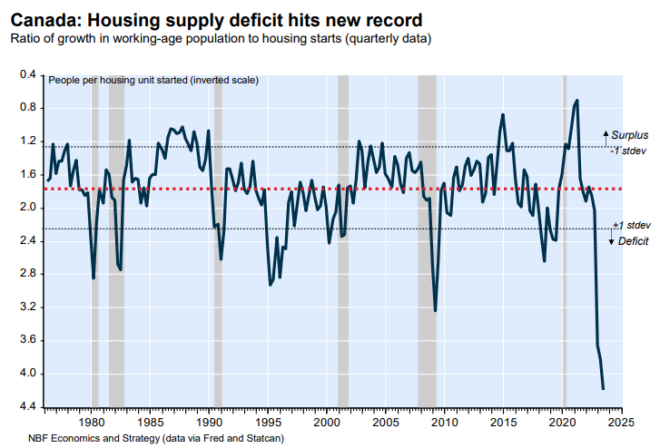
In other words, don’t be like Vancouver. And don’t listen to the BCA, which is talking its own book.
Reduce immigration to manageable levels instead.

